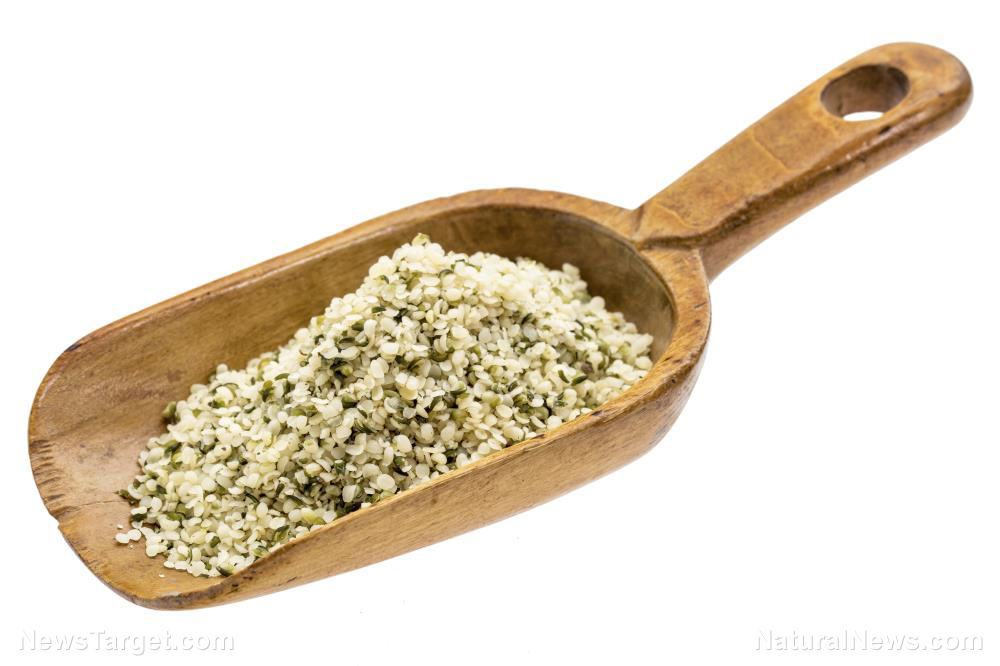Increase your intake of fatty acids to decrease risk of hypertension, as long as you aren’t diabetic
08/16/2019 / By Lance D Johanson

There are several dietary methods to prevent hypertension, to halt the buildup of arterial plaques, and to keep blood pressure readings at a normal, consistent range. A 2018 study from Kanazawa University in Japan looked at dietary intake of n-6 fatty acids and found two interesting correlations. An increased dietary intake of n-6 fatty acids was positively correlated with healthy blood pressure readings, but in cases where glucose tolerance was implicated, increased dietary intake of n-6 fatty acids was actually correlated with greater risk of hypertension.
Fatty acid intake has a positive influence on blood pressure, but only when the pancreas is working properly
The study encompassed 633 Japanese patients who were over forty years old. Each person was required to report their dietary intake of n-6 fatty acids. A building block of fat, n-6 fatty acids metabolize into prostaglandin and thromboxane in the human body. These two metabolic products help control blood pressure, but their effects are adversely affected by glucose intolerance.
Of the participants in the study, 55.3 percent showed signs of stage 2 hypertension. Their blood pressure consistently read 140/90 mmHg. Participants with hypertension, who had glycated hemoglobulin values less than 6, experienced lower blood pressure readings as they increased their intake of n-6 fatty acids. However, participants with hypertension, who had HbA1c values greater than 6, experienced no benefit from n-6 fatty acids and actually suffered from worse hypertension.
The lead author of the study, Haruki Nakumura looked to previous meta-analyses on n-6 fatty acid intake to determine the parameters of his study. In previous studies, linoleic acid (an n-6 fatty acid) had been associated with higher rates of death from cardiovascular disease, suggesting that an increase in n-6 fatty acids provided no benefit for those who were already at risk for hypertension or diabetes. What was inhibiting the cardio-protective benefits of fatty acids? Nutrient consumption doesn’t always equate to health benefits. Proper absorption and metabolism of nutrients is where the science begins. Nakumura wanted to look closer and see how glucose intolerance influences the cardio-protective properties of fatty acid metabolites. The researchers found that fatty acids help improve the cardiovascular system, but only when there are no metabolic disorders present, such as diabetes. The good news is that there are also dietary methods to improve this metabolic condition, too!

“There have been conflicting reports of the relationship between dietary intake of n-6 fatty acids and risk of hypertension,” says Nakamura. “Metabolites of n-6 fatty acids can lower blood pressure in a manner influenced by blood glucose levels. Therefore, we suspected that the relationship between dietary intake of n-6 fatty acids and risk of hypertension might be affected by glucose tolerance, which is impaired in patients with diabetes.”
Nakamura said, “Our analyses revealed a relationship between dietary intake of n-6 fatty acids and glycated hemoglobin in the blood (our definition of diabetes), which has not been previously established.” The research suggests that regular dietary intake of n-6 fatty acid helps prevent hypertension in healthy individuals who have a properly functioning pancreas.
Great sources of n-6 fatty acids include, but are not limited to: borage oil, hemp seed oil, evening primrose oil, and sunflower seed oil. Obtaining the correct ratio of omega-3 and omega-6 fatty acids from the diet is an important step in the prevention of cardiovascular disease.
For more on how food metabolites affect your health, check out Nutrients.News.
Sources include:
Submit a correction >>
Tagged Under:
alternative medicine, blood pressure, cardiovascular health, diabetes, dietary changes, fatty acids, glucose intolerance, heart health, Hemp Seed Oil, hypertension, metabolic disorders, metabolism, natural cures, natural medicine, nutrients, omega-6 fatty acids, prevention, prostaglandin, research, thromboxane
This article may contain statements that reflect the opinion of the author





















